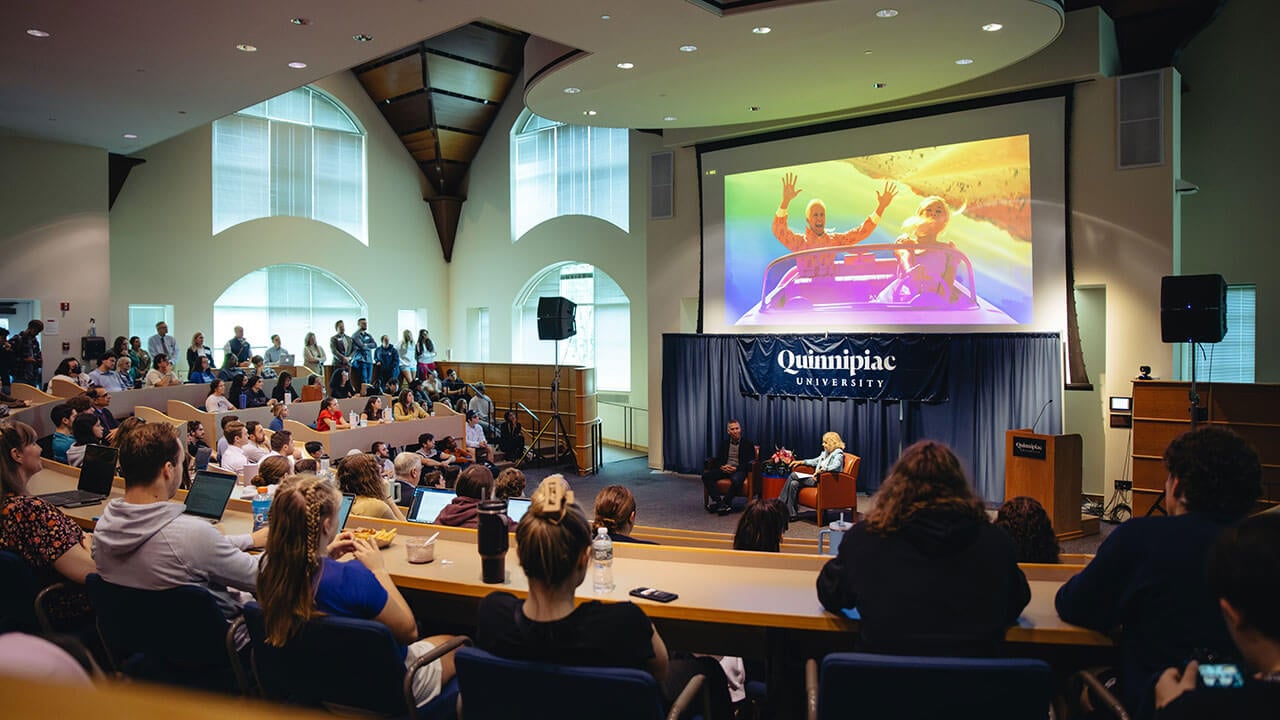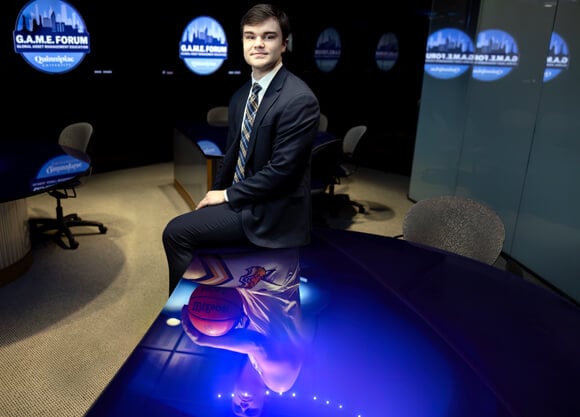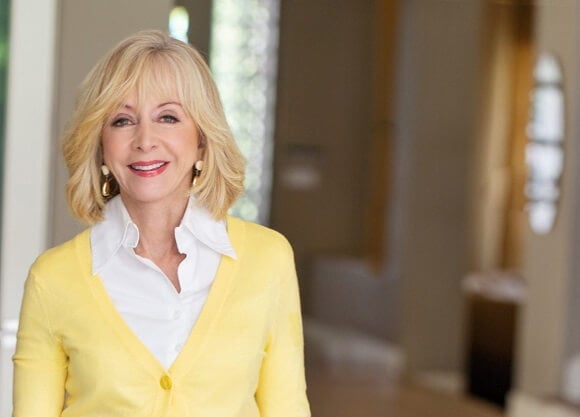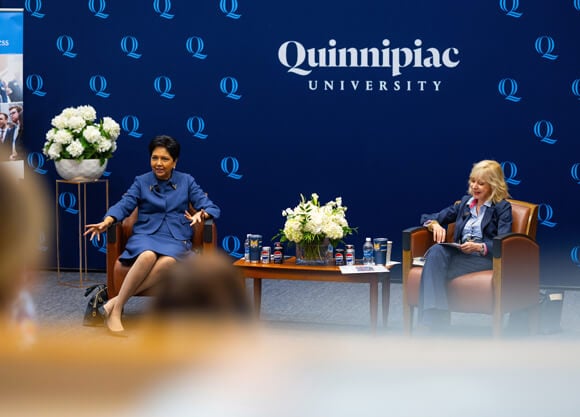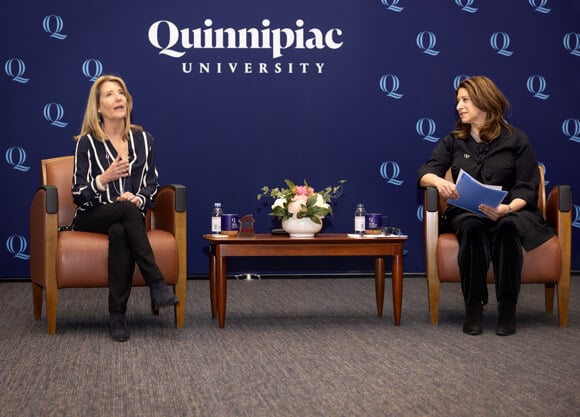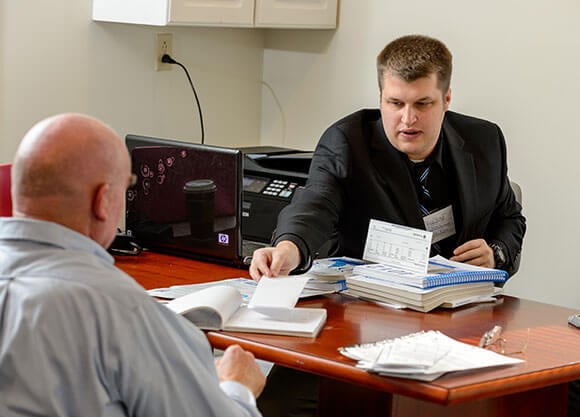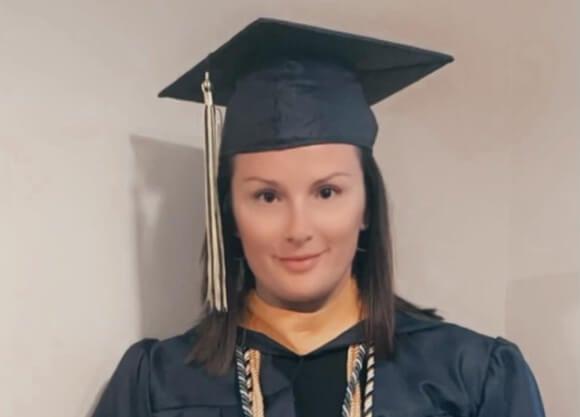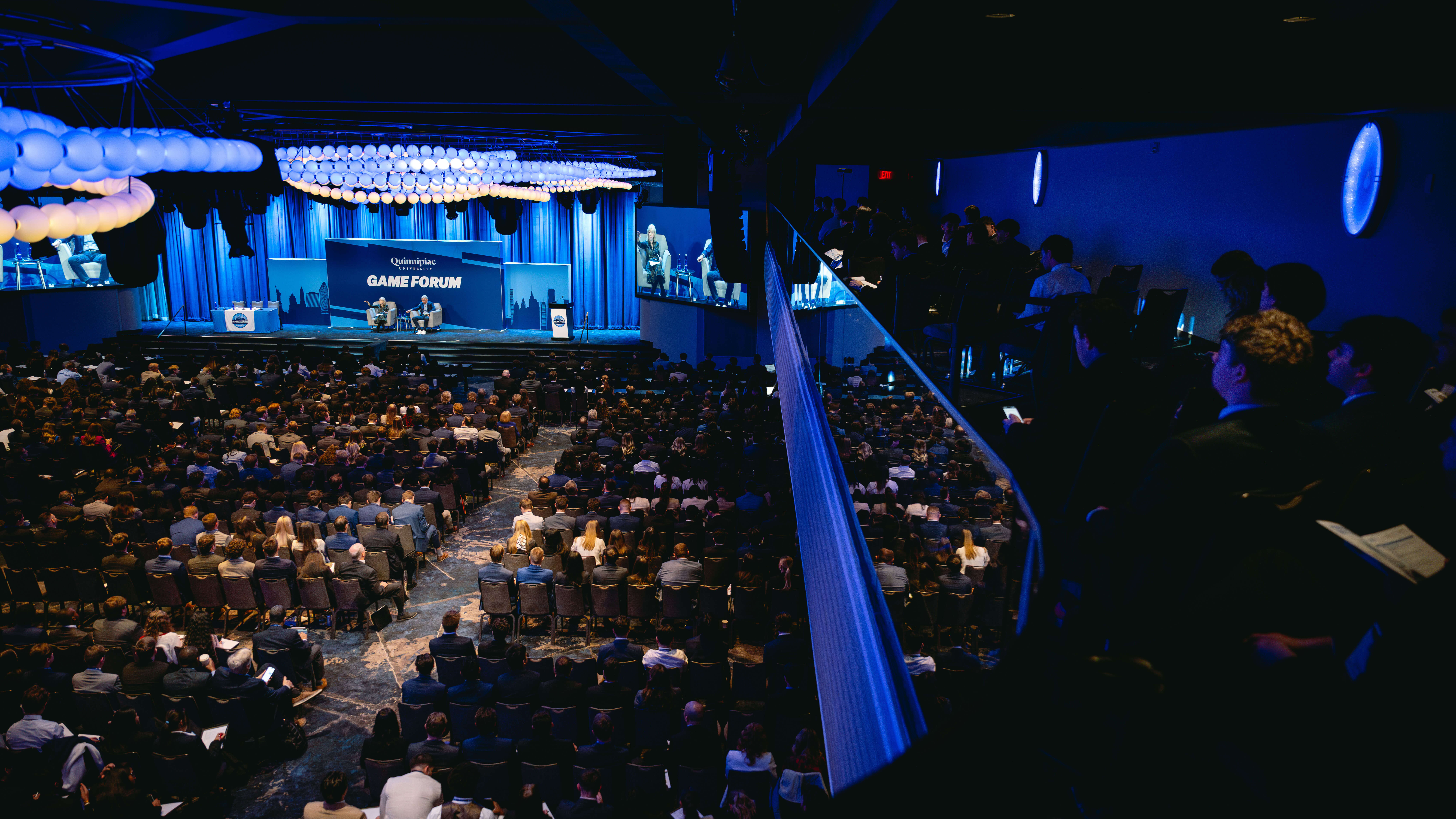
As Mattel’s fourth CEO in four years, Kreiz understood the stakes. But where others saw a toy company in turmoil, Kreiz saw the opportunity of a lifetime.
Five years later, boosted by the “Barbie” movie and $1.4 billion in worldwide gross sales, Mattel has emerged smarter and stronger under the venerable leadership of Kreiz, who joined President Judy Olian on Friday for a Fireside Chat.
Holly Raider, dean of the School of Business, introduced Kreiz to an overflow crowd of more than 400 at the Mount Carmel Auditorium. With every seat taken — and students sitting in the aisles and other spaces — the room collectively leaned in to hear one of the industry’s boldest comeback stories.
“Mattel is exemplary as a case study in the transformational building of a portfolio of toys and toy brands to become a multimedia, multiform entertainment company that is now something of a cultural phenomenon,” Raider said.
Kreiz took Mattel from a company that relied almost entirely on toy manufacturing — think Barbie, Hot Wheels, Fisher-Price, Magic 8 Ball — and pivoted to an entertainment company leveraging its intellectual property with one of the world’s strongest toy portfolios.
By the end of 2021, sales were up 21% for the year, according to Forbes. During a February 2022 conference call with analysts, Kreiz declared that Mattel’s turnaround was complete, and the company was focused on growth.
For Kreiz, the end game is content creation, not selling toys. The reboot of Mattel’s business model is about agility and meeting the demands of consumers in an ever-changing digital marketplace that includes movies, TV and video games.
“We had a conversation. It was literally, ‘Don’t try to sell even one toy.’ Make great content that people want to watch,” said Kreiz, who earned his MBA from the UCLA Anderson School of Management, where he first met Olian, the school’s former dean and John E. Anderson Chair of Management. “So, if people watch our content, good things will happen. We’ll also sell toys and consumer products, but it has to start with quality content. It’s all about quality. It has to be authentic.”
Mattel’s legacy toys have found their way into the hearts, beds and driveways of children for two and three generations. Barbie, for example, made her retail debut in 1959. The first Hot Wheels cars, meanwhile, hit store shelves and makeshift ramps a decade later in 1968.
“The real change in our DNA was to think about the people who buy the product not just as consumers, but as fans,” Kreiz said. “When you have a lot of fans, it becomes an audience. And when you have an audience, it changes the conversation.”
Kreiz plans to make more movies based on Mattel’s legacy toys, he said. So watch for Tom Hanks to portray his favorite childhood toy in a movie about Major Matt Mason. And look for Vin Diesel in an upcoming film about the Rock ‘Em Sock ‘Em Robots.
Olian, a member of Mattel’s board of directors, asked about the company’s decision to expose Barbie to risk and the loss of public favor. What if the movie flopped? What if all that pink merchandise became red ink?
“When the brand evolves and changes and you do something that's so different from before, there’s an inherent risk,” Kreiz said. “This movie wasn’t marketed in the traditional way. The tagline that Warner Bros. came up with was, ‘If you love Barbie, this movie is for you. If you hate Barbie, this movie is for you.’ So you might say, ‘Why use the word hate with a revered brand?’ We felt this would trigger a reaction with more interest and anticipation. We didn’t just back it. We embraced it.”
Ultimately, the Barbie movie has become the largest-grossing film in the 100-year history of Warner Bros. Bigger than any of the Batman movies. Bigger than anything in the Harry Potter cannon.
Looking back, Kreiz said he trusted the people who prepared him for this moment and Mattel’s turnaround.
Kreiz landed his first job out of UCLA Anderson in 1994 with that newly minted MBA, after connecting with Haim Saban, the creator of the Power Rangers franchise. Saban wasn’t just a mentor and business partner. He was an entrepreneur and an Israeli, just like Kreiz.
Together, they launched Fox Kids Europe, part of a joint venture with Fox. The multinational children’s entertainment company featured channels all across Europe in 17 different languages.
“It was a formative experience,” Kreiz said. “I always say that I got my undergraduate degree at Tel Aviv University, my MBA at UCLA and my PhD with Haim Saban.”
Today, Kreiz is the one dispensing advice to college students at Quinnipiac and elsewhere. So Olian decided to pick his brain. “When you interview young people, who rises to the top and why?” she asked.
Kreiz thought for a second and shook his head.
“There is no formula. I just think you have to come in and be yourself,” Kreiz said. “Don’t try to be anyone or anything else. Be authentic. Be yourself.”
Just ask Barbie. It sure worked for her and Mattel.
In this Article
Stay in the Loop
Quinnipiac Today is your source for what's happening throughout #BobcatNation. Sign up for our weekly email newsletter to be among the first to know about news, events and members of our Bobcat family who are making a positive difference in our world.
Sign Up Now